Vancouver-based nonprofit provides thriving community for area youth
VANCOUVER — Rachel Rippey found her family when she was in the fourth grade.
Like so many other students, she was experiencing bullying, and looking for a safe haven outside of school. She found it walking into the Boys and Girls Club of Southwest Washington (BGCSW).
“Once you’re in the family, you just want to keep coming back,” Rippey said. “I would say definitely try it out. See if you find your family here, I know I did.”
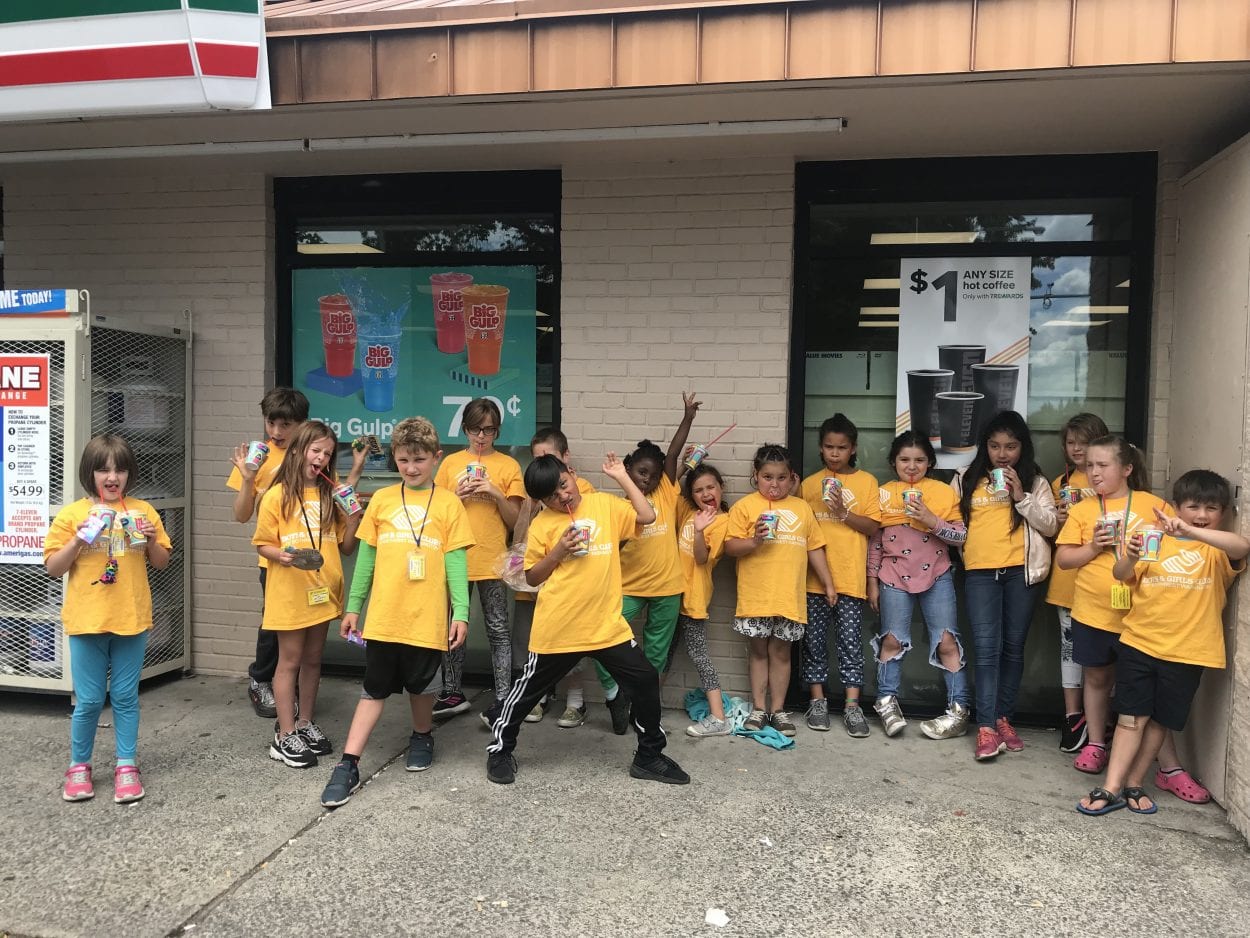
Now going into her senior year at Union High School in Vancouver, Rippey says she became part of the family through working with the staff at her clubhouse, and volunteering as junior staff.
BGCSW first began serving students ages six to 18 over 20 years ago as a stand-alone nonprofit with connections to the Boys and Girls Club of America. The organization currently have six locations, with some being stand-alone clubhouses, while others are programs housed inside area schools.
Together, they serve 4,000 students a year.
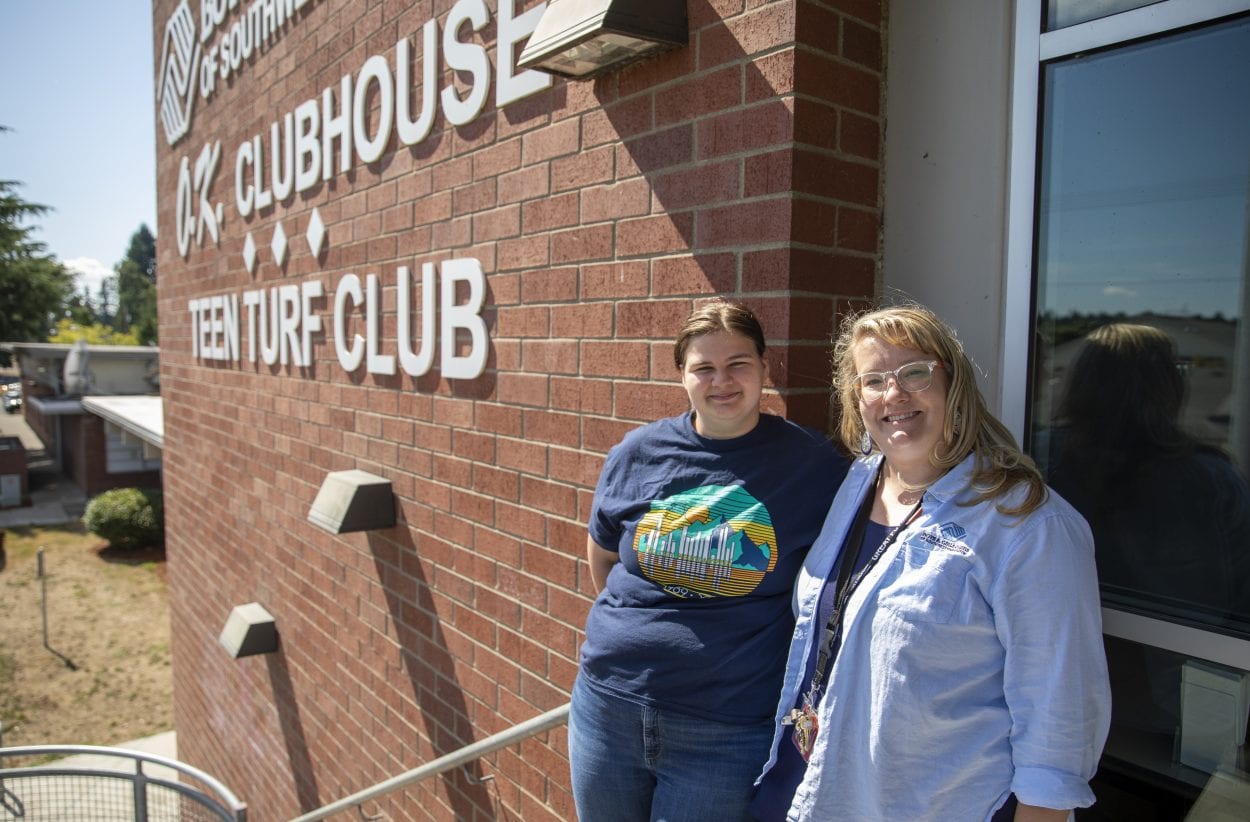
“For me, it’s the best part of my day to be out there with them, cooking, eating with them, playing games, like, that’s the best part of my job,” said Club Director Kaaren Dreffin, or more appropriately, “Mama Kaaren,” as she is known by many of her club students, including Rippey.
Dreffin, who’s O.K. Clubhouse, the Teen Turf Club, sits in the heart of Vancouver’s Bagley Downs, became part of BGCSW because she grew up witnessing the power positive mentorship has on lives.
Throughout her childhood, Dreffin’s mother did foster care with behaviorally challenged youth.
“I got to live vicariously through these youth and their trauma, and saw how one person can just make a difference,” she said, with tears in her eyes. “Kids that came out of juvenile could then go be successful in the real world, with someone who cared about them, and build those skills up for them. So that kind of ignited this passion in me at a really young age.”
Every night during the school year,and every Wednesday during the summer, Dreffin and her team make dinner for their youth and their families.
The results have been transformative; allowing for children, many of whom only receive one meal during the day in the form of school lunches, to eat with loved ones, friends and mentors.
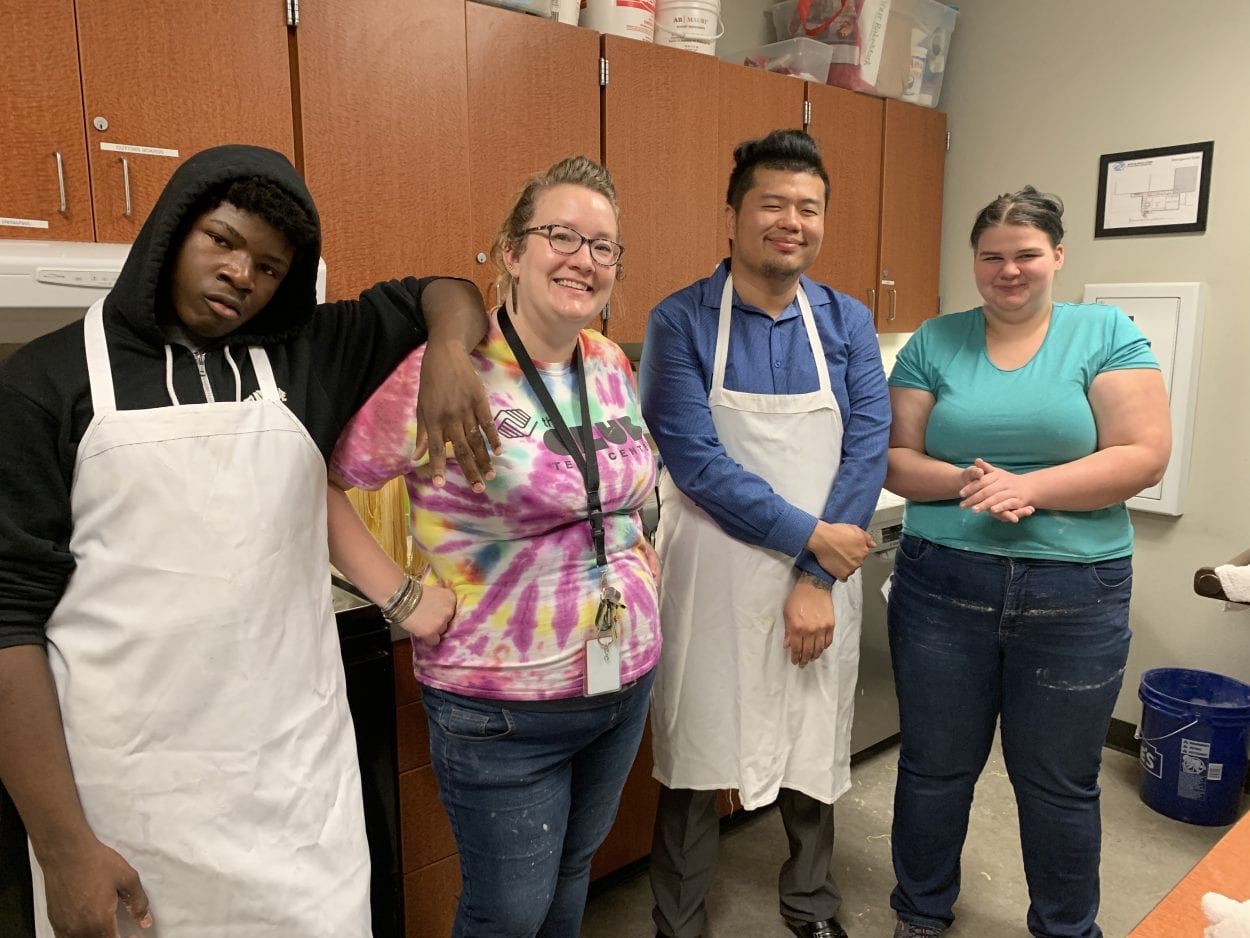
At Teen Turf Club, vandalism and violence have gone down, and students viewing the club as their family as increased, all because of the meals, Dreffin said.
BGCSW is able to feed students and their families through a partnership with the Clark County Food Bank, as well as a grant through the Community Health Plan of Washington.
Two thirds of all club members in BGCSW qualify for free or reduced lunch with the school system, which is used as a measurement of poverty level. In spite of this, no one is refused meals or has to pay full price for membership at any clubhouse.
“We engage young people, and we build relationships with young people and their families,” said Executive Director Francisco Bueno. “So that were able to push and challenge them and offer these opportunities where they say, ‘Yeah, Francisco, I trust him. Let’s do this.’
“If I’m working with a group of young people and I can convince them that going down the street and picking up trash is something they want to do, and I’m not forcing them, I’ve got a really strong relationship and a lot of trust,” Bueno said.
Bueno first moved to the area 13 years ago, and became involved in the program through AmeriCorps. He met Elise Menashe, the former executive director, and began working directly with the program.
After obtaining his degree and working with another nonprofit, he returned last year to lead the organization. Much like Dreffin, he was inspired by his mother.
“She modeled what it is to be a community member, and a connected community member,” he said. “Relationships drive change. We’re based in relationship, and relationship building is key to what we do. It’s about focusing in on a group of people, young people, that deserve our best, and deserve every opportunity. No matter what zip code they’re born in.”
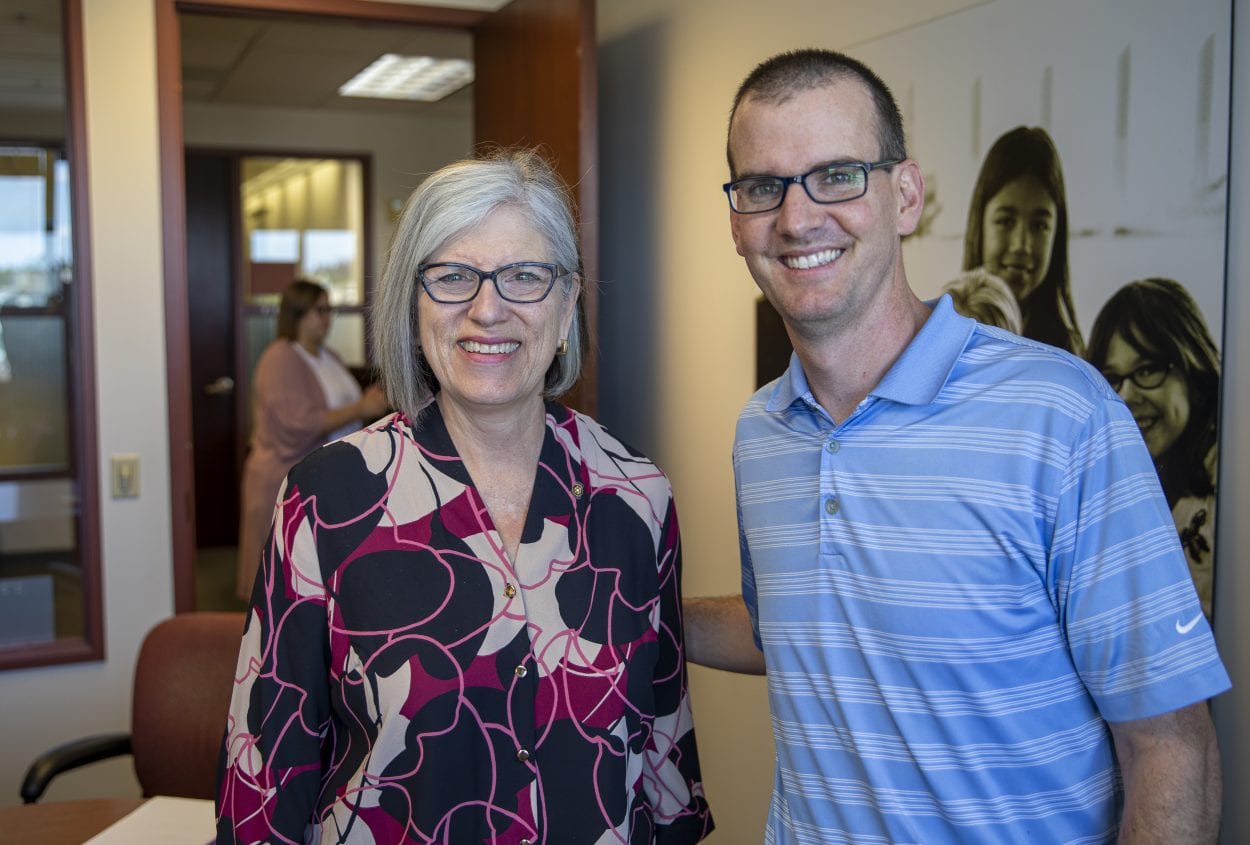
Deeply impacted by Menashe, Bueno now has a pair of black leather shoes atop his desk; the symbolic “big shoes to fill.” Just the other day, a coworker came and filled them with pebbles. “You’re filling them,” they said.
Over the years, Bueno has been able to, literally, watch students grow up in the program and then give back. In fact, several of his current staff who are 19 and 20 years-old, he knew as second graders in the program.
Currently with BGCSW, there are a multitude of programs and activities the organization works to implement every day in the community; many of which have become vital to area families.
In the 2017-2018 school year, 10 elementary schools served by BGCSW saw low percentages of students who achieved a third grade English Language Proficiency test standard, in comparison to other K-5 Vancouver and Evergreen schools, according to BGCSW.
There are some 81 native languages spoken in the Vancouver School District, according to BGCSW, with many learning English as a second language.
To remedy this, BGCSW offers several academic success programs including, individual mentoring, “Power Hour” after-school homework help, Academic Innovation and Mentoring, (AIM), as well as supervised technology activities in computer labs.
“There really are kids in these neighborhoods that need a lot of help, and this is their place where they go,” said Director of Resource Development Judith McMorine. “It’s a community, and to them it’s fun, but it’s helping them for the long haul too. It’s helping them academically, and becoming better citizens. They actually have a community.”
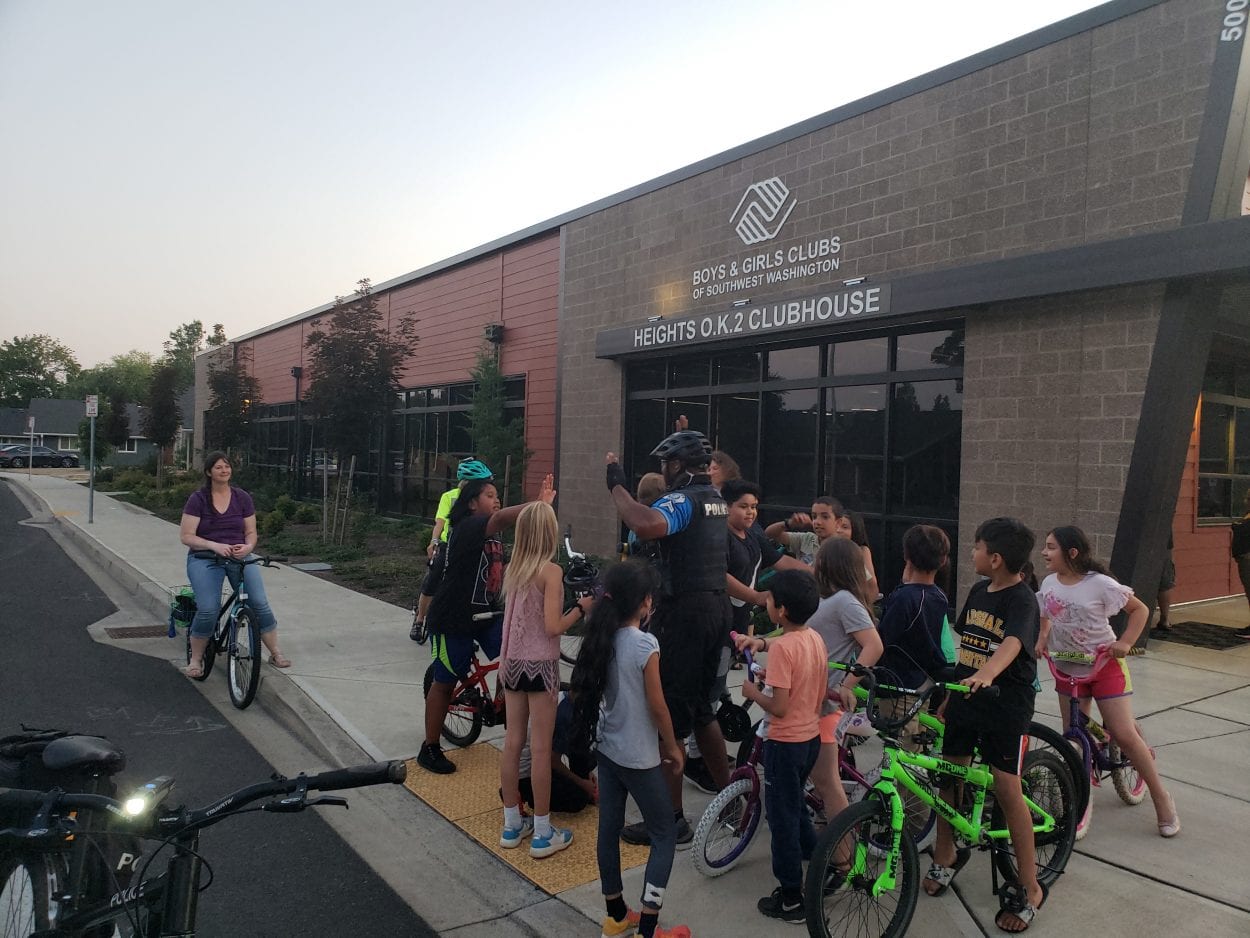
At Fruit Valley Elementary in west Vancouver, where BGCSW operates an after-school program, only 17 percent of students met grade level standards for math.
Factors such as socioeconomic status, hunger, abuse, and language barriers, are frequently seen in the lives of club members; often affecting their academic performance.
Programs like that at Fruit Valley, hope to change that by giving families the help they need when it comes to their children.
“Being a part of a community is the best part of this role,” said Fruit Valley Club Director Emily Crooks. “Just wanting to give back and wanting to make our neighborhood and Vancouver, Clark County a better place in general. I think that’s what keeps me here; that commonality in that passion that we all have.”
In addition to academics, BGCSW hosts a variety of extracurricular activities. Everything from art competitions, to basketball leagues, to gym games, and even a unique program specifically for young girls.
The Smart Girls program at several BGCSW locations has become very popular, according to McMorine. Focusing on instilling healthy identity by empowering young women, the program deeply impacted her by what she witnessed at a recent Smart Girls event.
“They had a girls afternoon, where they took all the girls in the program who wanted to attend and they did makeup and hair and dressed up, went out to dinner together,” she said. “Many of them socially awkward, and they were just glowing. Things that they wouldn’t necessarily do with other kids in school.”
McMorine, who was a single parent, said she now sees everyday the benefit her organization has on the futures of boys and girls; young men and young women.
“Kids are our future, but this is for their future,” McMorine said.
If you would like to become involved with the Boys and Girls Club of Southwest Washington, or are interested in helping the organization, visit their website or Facebook page.




